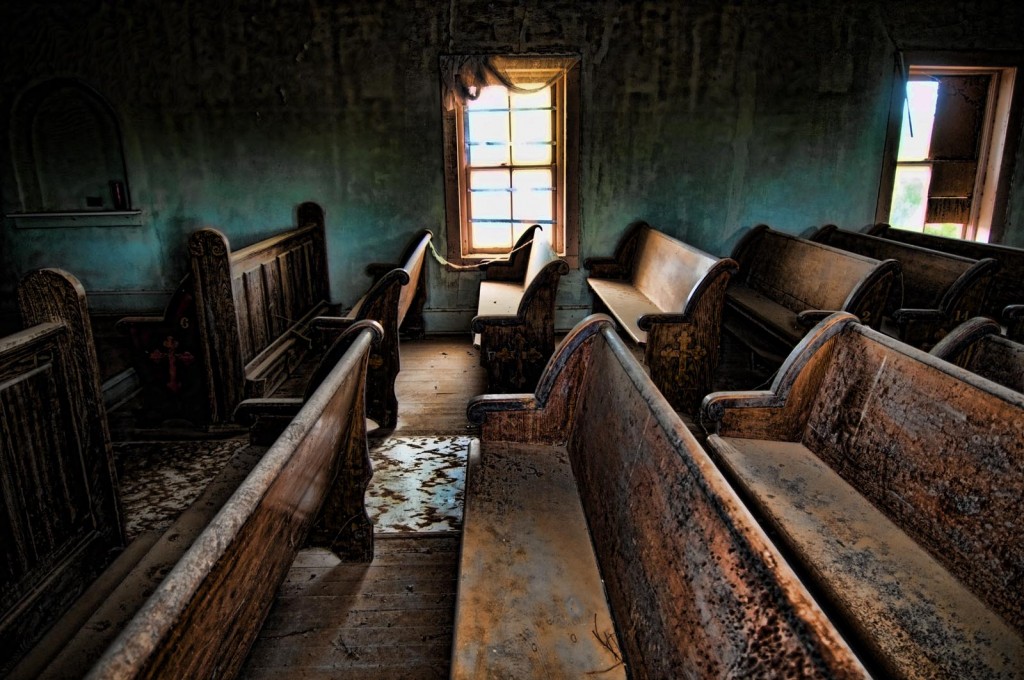Recently I picked up a small volume from a stack of books marked, “Free for the taking.” I did so because I recognized the author: Vance Havner. I’ve heard a hand full of recorded messages by Rev. Havner, but only read a few bits and pieces of his works. I’d found his razor sharp insight delivered with country wit rather refreshing. So I thought I’d give Jesus Only a try. When I came to chapter 10 I thought I might be reading something as contemporary as a blog written this week. Change a few of the labels and names and the prophetic insight is startling … and, again, refreshing. The message was originally published in 1946, but it could have been just this morning. I reproduce a rather lengthy section in which Rev. Havner speaks to the matter of tolerance and intolerance.
“The New Testament Church was an intolerant church. At once we throw ourselves open to a broadside of protest. ‘Intolerant’ is a scandalous word to use these days, for if there is anything that is in style among our ‘progressive’ churches it is that word ‘tolerance.’ You would think that intolerance was the unpardonable sin. We are majoring as never in church history on being broad-minded. That we have become so broad we have become also pitifully shallow never seems to disturb us. We must ‘broaden or bust.’ Of course, some experts in tolerance can be amazingly intolerant of those who do not share their broad-mindedness, but that does not disturb them either.
There is, of course, a false, pharisaic intolerance that has no place in a true church. And one encounters it again and again among conservative Christians. It has brought about the remark that the modernists are arid and the fundamentalists are acrid, that the former lack clarity and the latter charity. It has nicknamed the fundamentalists ‘feudamentalists’ and gotten them a reputation for spending so much time sniping at each other that they have little time left to go after the devil.
But there is a proper intolerance, and the New Testament Church had it. They were intolerant of any way of salvation except Jesus Christ. ‘Neither is there salvation in any other: for there is none other name under heaven given among men whereby we must be saved’ (Acts 4:12). That makes it straight and narrow, and it isn’t what you are hearing in some localities these days. You are hearing that Jesus is the best way but that other ways are good and will lead to God just the same. Union meetings of Catholics, Protestants, and Jews create the impression that a general faith in God is enough without specific faith in Christ. Now, that cannot be true if no man comes to the Father but by Christ. The devils believe that there is one God and tremble: men believe it and do not even tremble, but expect to reach heaven by theism instead of by Calvary.
The New Testament Church was also intolerant of anything that threatened to compromise this Gospel of No Other Name. In Galatia men tried to mix a little legalism, and in Colosse they were slipping in a bit of false mysticism—and Paul would have none of it. He could have been very ‘lovely’ about it and stylishly tolerant, and he could have said nothing about it. I am sure that some of the false teachers must have accused him of seeing bugaboos and hobgoblins. He could have told Timothy to play ball with the apostates of his day, but, instead, he wrote, ‘From such turn away.’ He advised Titus to reject a heretic after the first and second admonition, which sounds uncomfortably intolerant. And even the gentle John forbade hospitality to those who abode not in the doctrine of Christ, asserting that ‘he that biddeth him God speed is partaker of his evil deeds.’ To be sure, we are not advised to bawl him out and throw stones after him until he is out of sight: but neither is there any encouragement for that fashionable modern fellowship with unbelievers.
The New Testament Church was intolerant of sin in its midst. When serious trouble first showed up in Ananias and Sapphira it was dealt with in sudden and certain terms. When immorality cropped out in Corinth Paul delivered the offender to the devil for destruction of his flesh. It was in line with our Lord’s teaching on discipline in the eighteenth chapter of Matthew. To be sure, it was to be done in love and tenderness, and the brother overtaken in a fault was to be restored by the spiritual ones, and Paul was quick to recommend the restoration of the Corinthians brother. But, still, sin was not to be glossed over and excused as we condone it today in our churches until liars, gamblers, drunkards, and divorcees fill prominent places in Sunday schools and on boards and have never as much as heard that we must be clean who bear the vessels of the Lord. We have let the camel get his foot in the door and then his head, until now the whole camel is inside and along with him other animals far more unsavory. Peter added even hogs and dogs to our spiritual zoology, and the lambs today are so mixed with every other species that what was once a sheepfold has become a zoo. Our Lord warned us that the shepherd who did not stand his ground when the wolves appeared was only a hireling. We are bidden to feed Hi sheep but not to feed wolves. I grant you that it is often a complicated problem and can be handled only on one’s knees. But we are paying an awful price today for our sweet tolerance of sin within the Church. If the church of the Acts had overlooked iniquity and by-passed evil and smilingly looked the other way while the devil sneaked into every phase of her life as we have done today, Christianity would have died in infancy.
The New Testament Church had a healthy, holy intolerance. It got somewhere because it started out on a narrow road and stuck to it. It might easily have taken up a dozen wide boulevards and ended in destruction. We face the peril of the wide gate and the broad way today, and it tantalizes us all the more because ‘many there be which go in thereat.’ We were told a long time ago that ‘few there be’ who take the S. and N. the Straight and Narrow. We Americans especially are gregarious; we like to run with the crowd. We had rather be called almost anything on earth than narrow; yet our Lord chose the adjective, and faithfulness to Him will prove that it still fits today.
I am sure that there were those who called the Early Church ‘exclusive,’ and predicted that it would never get anywhere until it became inclusive. ‘Exclusive’ is another word that is anathema today and has been shoved into the limbo of the outmoded, along with ‘intolerant’ and ‘narrow.’ But the New Testament Church was the most exclusive fellowship on earth. It was not just a society of people with good intentions. It was not a club for improving the old Adam. It was a fellowship of people who believed in Jesus Christ as the one and only Saviour. It seemed not to have a chance in the face of the great Roman world. It could easily have let down the bars and taken in all sorts of religiously minded folk, but it stuck to ‘Jesus Only.’ A river may look very lovely spread out all over a marsh, but to generate power it must narrow itself. We have endeavored to spread out the river today. We have sacrificed death for width and instead of a power dam we have a stagnant swamp.” (pp.60-63)

